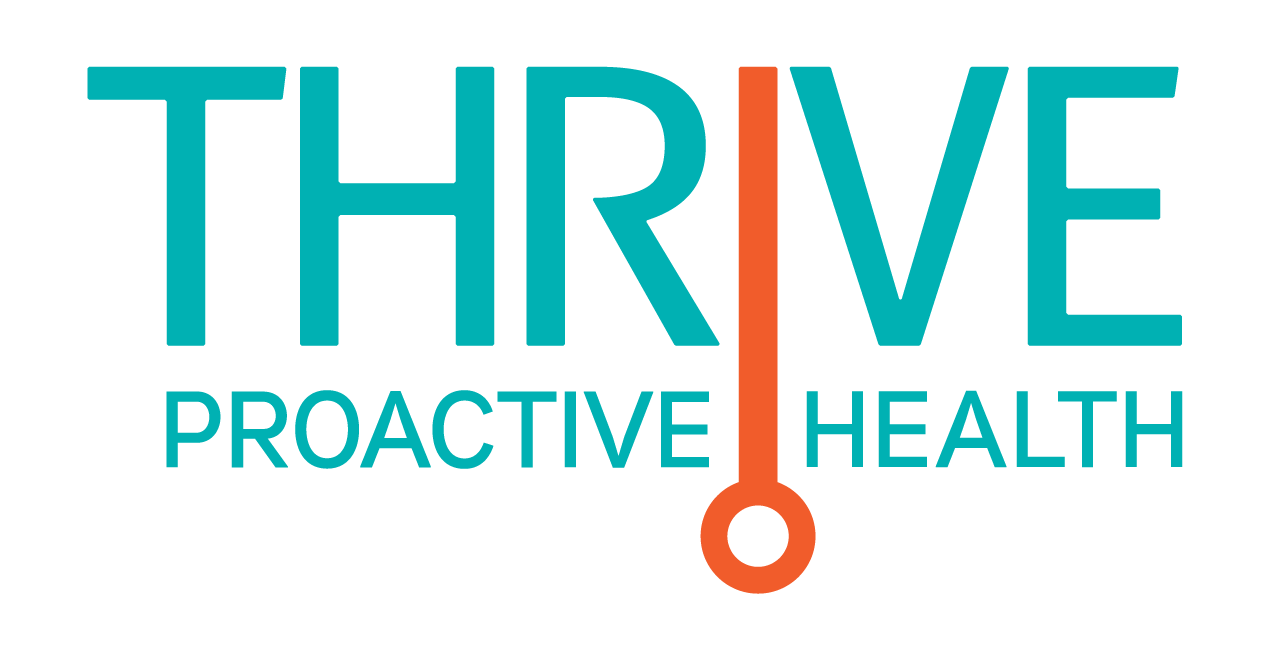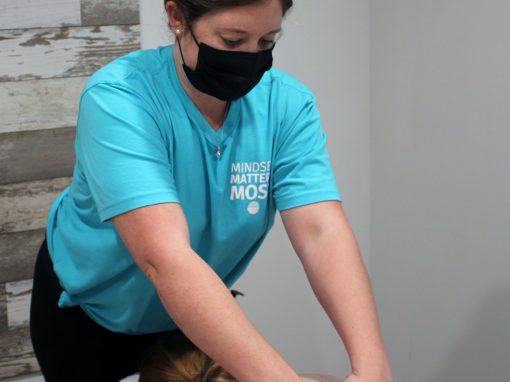We all know that stress has become an unavoidable part of life. But what if we told you that managing stress effectively isn’t just about feeling better in the moment—it’s a key component of lifelong health? At Thrive, we believe in a proactive approach to wellness, and lifestyle medicine is at the heart of what we do. Stress management isn’t just an afterthought; it’s a core pillar of lifestyle medicine, and understanding how it impacts your health is the first step toward thriving.
What Is Lifestyle—Thrivestyle—Medicine?
Lifestyle medicine is an evidence-based approach to preventing, treating, and even reversing chronic diseases by focusing on six fundamental pillars:
- Mindset: Your feelings follow your focus. When we focus on the positives in our lives, we feel better. When you’re focused on the negative, you will feel negative. Your focus also follows your feelings, which can then lead to a feedback loop that can be positive or negative.
- Sleep: Prioritizing sleep is vitally important to your health. It does not take long for a lack of sleep to negatively impact our health, including decreased response times, decreased performance, and increased moodiness. Chronic sleep dysfunction increases the risk of type 2 diabetes, cardiovascular disease, and more.
- Stress Resilience: How we think about and respond to stress makes the difference in how it impacts our self care and health. The stress response is a cascade of physiological events that can lead to improved health and productivity, or to anxiety, depression, obesity, immune dysfunction, and poor health outcomes.
- Community: We are wired to connect with others through feelings. We truly are social beings, and need to be connected with others to be emotionally well. Research shows that positive relationships are key to our well-being, and are as important to living a long life.
- Exercise: Research overwhelmingly shows that movement and exercise is beneficial for health. It can make us happier and more emotionally resilient. Regular movement has been shown to be as powerful as antidepressant medications and without any of the nasty side effects.
- Nutrition: What we put into our bodies each day dramatically impacts our health and well-being. Our bodies are complex machines that function best when we provide them with quality fuel.
Among these six pillars, stress management stands out as a linchpin. Chronic stress has a direct impact on nearly every system in the body, and without strategies to address it, other healthy habits can become less effective.
How Stress Impacts Your Health
Stress is a natural response to life’s challenges, but when it becomes chronic, it can wreak havoc on your physical and mental well-being. Here’s how stress negatively impacts different aspects of your health:
- Hormonal Imbalance: Chronic stress leads to elevated cortisol levels, which can contribute to weight gain, anxiety, and immune dysfunction.
- Inflammation: Persistent stress triggers inflammation, which has been linked to conditions such as heart disease, diabetes, and autoimmune disorders.
- Digestive Disruptions: Stress interferes with gut health, often causing bloating, indigestion, and even irritable bowel syndrome (IBS).
- Weakened Immune System: When stress is unrelenting, your body struggles to fight off infections and heal properly.
- Mental Health Challenges: Anxiety, depression, and burnout are common consequences of prolonged stress.
- Poor Sleep: Stress disrupts your sleep cycle, leading to fatigue, mood swings, and diminished cognitive function.
At Thrive, we emphasize stress management as a proactive tool, not a reactive one. By integrating stress-reducing techniques into your daily routine, you can take control of your health and improve your quality of life.
The “How” of Stress Management: Practical Strategies for a Balanced Life
Stress is inevitable, but suffering from it doesn’t have to be. By incorporating intentional stress management strategies into your routine, you can mitigate its negative effects and build resilience. Here’s how:
-
Mindful Breathing & Meditation
- Box breathing (inhale for four counts, hold for four, exhale for four, hold for four)
- Diaphragmatic breathing (deep belly breathing to activate the parasympathetic nervous system)
- Guided meditation for relaxation and focus
Even just five minutes of mindful breathing a day can have profound effects on stress levels.
-
Movement & Exercise
- Yoga for a combination of mindfulness and movement
- Strength training to boost confidence and resilience
- Walking outdoors for natural stress relief and vitamin D exposure
-
Prioritizing Restorative Sleep
- Creating a calming nighttime routine (no screens, dim lighting, relaxation techniques)
- Keeping a consistent sleep schedule
- Using sleep-supporting supplements (like magnesium) when necessary
-
Nutritional Support for Stress Management
- Eating anti-inflammatory foods such as leafy greens, nuts, and omega-3-rich fish
- Limiting caffeine and sugar, which can spike stress hormones
- Staying hydrated to maintain cognitive function and energy levels
-
Building a Strong Support System
- Group wellness programs for accountability and encouragement
- One-on-one coaching for personalized support
- Community engagement to foster belonging and emotional security
-
Mindset & Cognitive Resilience
- Practicing gratitude to rewire the brain for positivity
- Engaging in journaling to process emotions
- Using affirmations to build confidence and inner strength
-
Massage, Acupuncture, and Holistic Therapies
- Massage therapy to release tension and improve circulation
- Acupuncture to regulate your nervous system and reduce stress hormones
- Chiropractic care to align your body and relieve physical stress
- Energy Healing to help energy flow more easily through your body
Why Thrive Proactive Health?
We believe that true wellness is about more than just treating symptoms—it’s about building a foundation for long-term vitality. Our team of dedicated professionals works with clients to create personalized stress management plans that align with their unique needs and goals. Whether you’re looking to incorporate mindfulness practices, improve sleep, or explore holistic therapies, we’re here to support you every step of the way.
By addressing stress as a central pillar of “Thrivestyle” medicine, you’re not just managing a condition—you’re optimizing your entire life. When stress is under control, everything else falls into place: energy levels rise, mood improves, the immune system strengthens, and chronic disease risk diminishes.
Are you ready to take a proactive approach to your health? Reach out to us today to learn more about our wellness programs, holistic therapies, and lifestyle coaching services. Your best life starts now!




















































































































































